Jendela Papua: Reflection of Us, Papua, and Indonesia, for the World
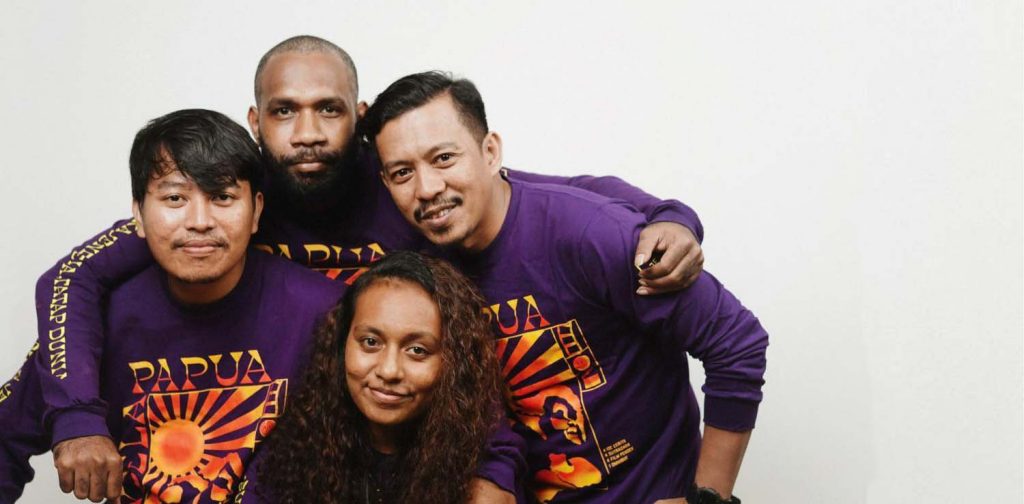
The four winners of Jendela Papua, future faces of Indonesia's creative industry. | Source: Qun Films
Located in the most Eastern part of Indonesia, Papua is rich in natural and cultural resources. With those riches, many quality works should come out of Papua. Unfortunately, public spaces that accommodate various artistic expressions of the Papuan people, especially cinema works, are still minimal. ‘Jendela Papua’ – directly translated to the Window of Papua – intends to use written stories as a reflection of us, the land of Papua, Indonesia, and the world in the future.
On behalf of Green Network Asia, I did a Google Meet interview with Qun Films‘ Axel, Dani, Jody, and Deva, as well as Theo from ‘Jendela Papua’ on Thursday evening (03/03). We discussed the Qun Films’ ‘Jendela Papua’ project and how it explores the creative sides surrounding sustainability.
What was the main issue that you saw regarding the movie industry and Papua?
So far, if we discuss films about Papua, there must be some characters or actors that we already know. However, moviegoers have changed from the past to now. They’re smarter, fiercer, and more critical. There is a lot to consider, to be careful about, l when we want to make a film about Papua. Maybe we used to like the movie ‘Di Timur Matahari’ and then ‘Denias,’ perhaps we liked it. Still, when we were young, literacy didn’t come out yet. Then if we remember now, it feels kind of like Papua from a somewhat Javanese point of view.
What sparked you to initiate the Jendela Papua project?
We started by wanting to create a more artistic project than usual. When we were looking for that idea, one of our friends challenged us to create a film about Papua. We actually felt insecure at that moment because we thought it was not going to be easy to portray the real Papua. On the other hand, we also believed that Papua needed that authentic portrayal from our end in terms of the creative side. The idea of forming the ‘Jendela Papua’ was also driven by thinking about sustainability in the creative field.
How did the project come to be?
We don’t feel like we deserve to make that film. It’s that simple. We were born in Java with education, for example, in Bandung or Jakarta. I don’t think we deserve to represent our friends in Papua. That’s what we see. Something that we’re not experiencing on our own can’t be considered our voice.
So as producers, the next thing we did was look for voices from Papua. They understand Papua inside and out because, again, apart from being careful, we also want to give them space. Besides that, we are curious about what’s going on there. Those who can answer are people from Papua. After we went there, went to Papua, and tried to understand, it turned out that yes, indeed, they felt that Papua was not always like what people out there believed. So, we just started from there. Finally, we dared, and the ‘Jendela Papua’ was born.
What does the name ‘Jendela Papua’ mean?
It came from Jody, who is part of Qun. We generally feel that the creative industry is ‘Jakarta-centric’ or ‘Java-centric.’ Still, it is said to be ‘Indonesia.’
With ‘Jendela Papua,’ we want to open a window for Papua’s creativity. Jendela Papua means the window of Papua; for Papua to look outside and the people outside of Papua to look inside it. Through the window, we can see what is inside the house.
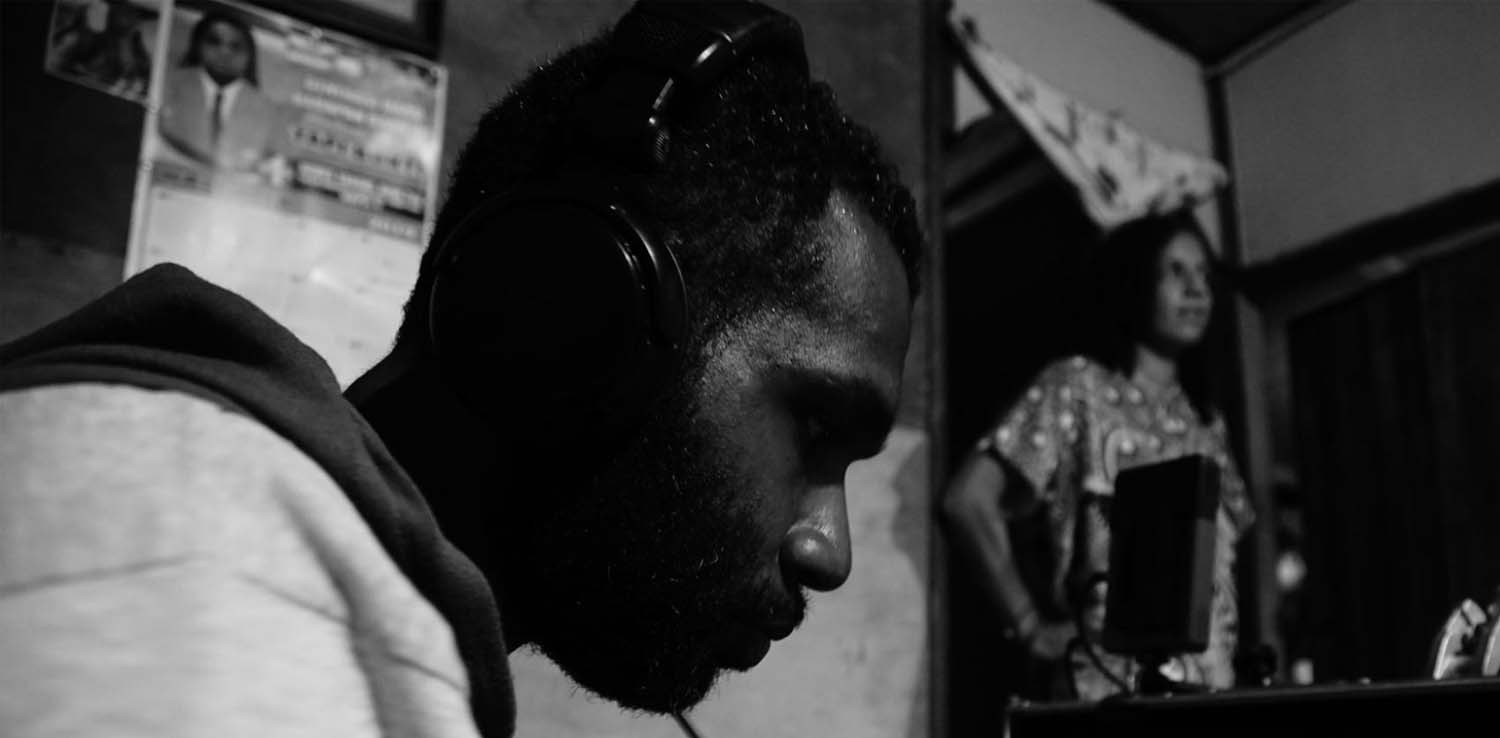
What was the process like at Jendela Papua?
Usually, we start a project with a script or other outline. For ‘Jendela Papua,’ we only had the principle that we wanted to make a film about Papua where we are not entitled to it, but Papuan themselves. It was pretty experimental, and we were taking the risk.
We promoted on social media and directly to several campuses in Papua. We held roadshows in Sorong and Jayapura and visited the University of Cendrawasih, ISBI, and STMIK Umel Mandiri to let more youth know about it. We thought that getting 10-20 participants was the target for offline promos on every campus, but more people came. For story submissions, our target was at least 30-40 people. We were looking for 4 winners assuming 10% of the stories & profiles of registered participants would be very qualified for a start as a good thing. Surprisingly, we received 198 total submissions from various cities and regions in Papua, which amazed us.
We screened through those 198 submissions until we had the chosen 4. The screening was carried out by the internal selection team and several judges like Hikmat Darmawan, Lasja Fauzia Susatyo, and Reza Fahri. The writing process took place for several months, followed by workshops and production. While in Jakarta, the four winners had sessions with well-known filmmakers to finalize film production preparations through private classes held by prominent names in the Indonesian film industry such as Ekky Imanjaya, Garin Nugroho, Edwin, Cornelio Sunny, Ifan Ismail, and Andy Pulung.
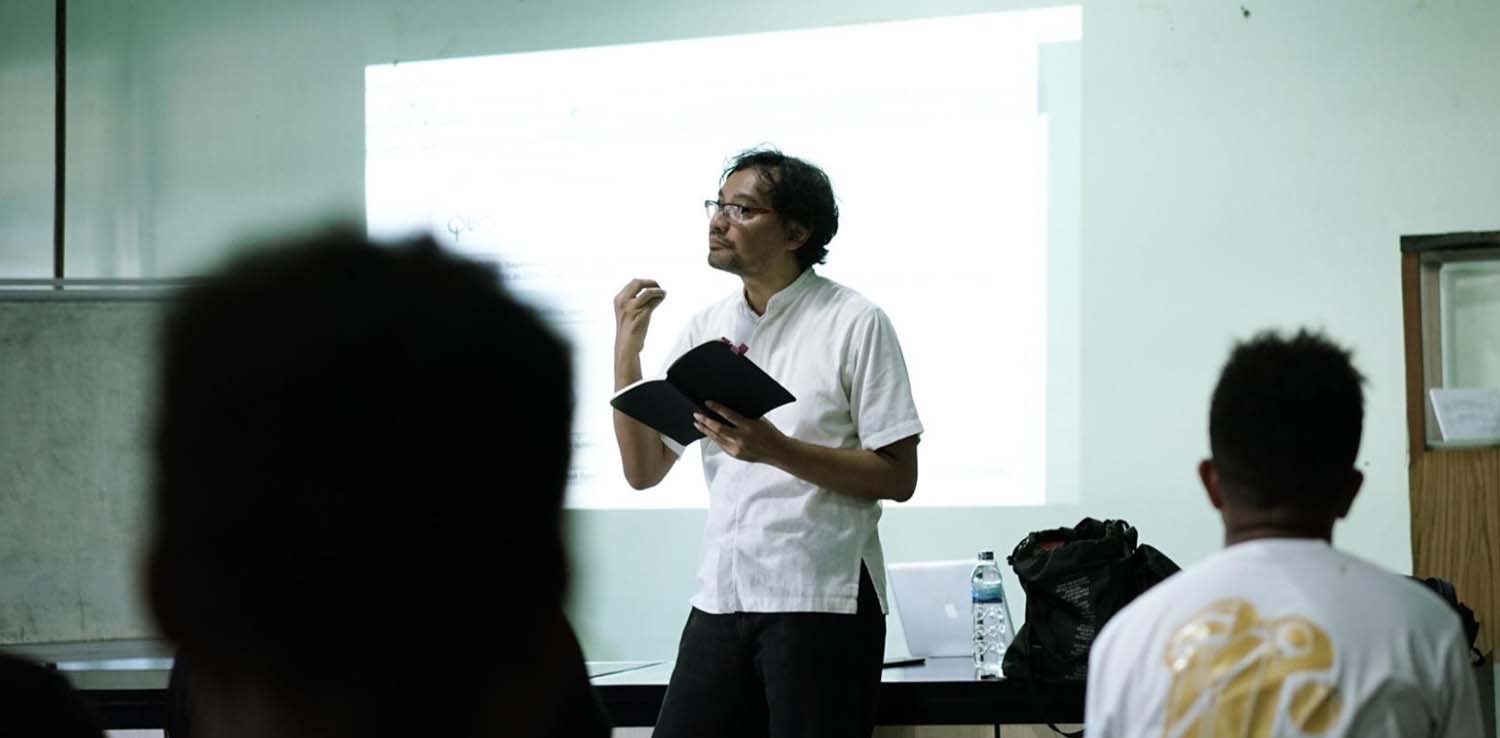
How are Papuan people involved in the project?
Jendela Papua is their project. It is a collaborative platform that relies on the Papuan people, anchored by Qun and Papuan friends. This project is a very experiential cultural exchange: Starting from looking for filmmakers, making ‘Jendela Papua’ a culture, bringing impact and output as a new spirit for Papuan friends. Starting from Papua, what is going on? From curiosity to adaptation, it would not be accessible nor possible without the help of friends in Papua.
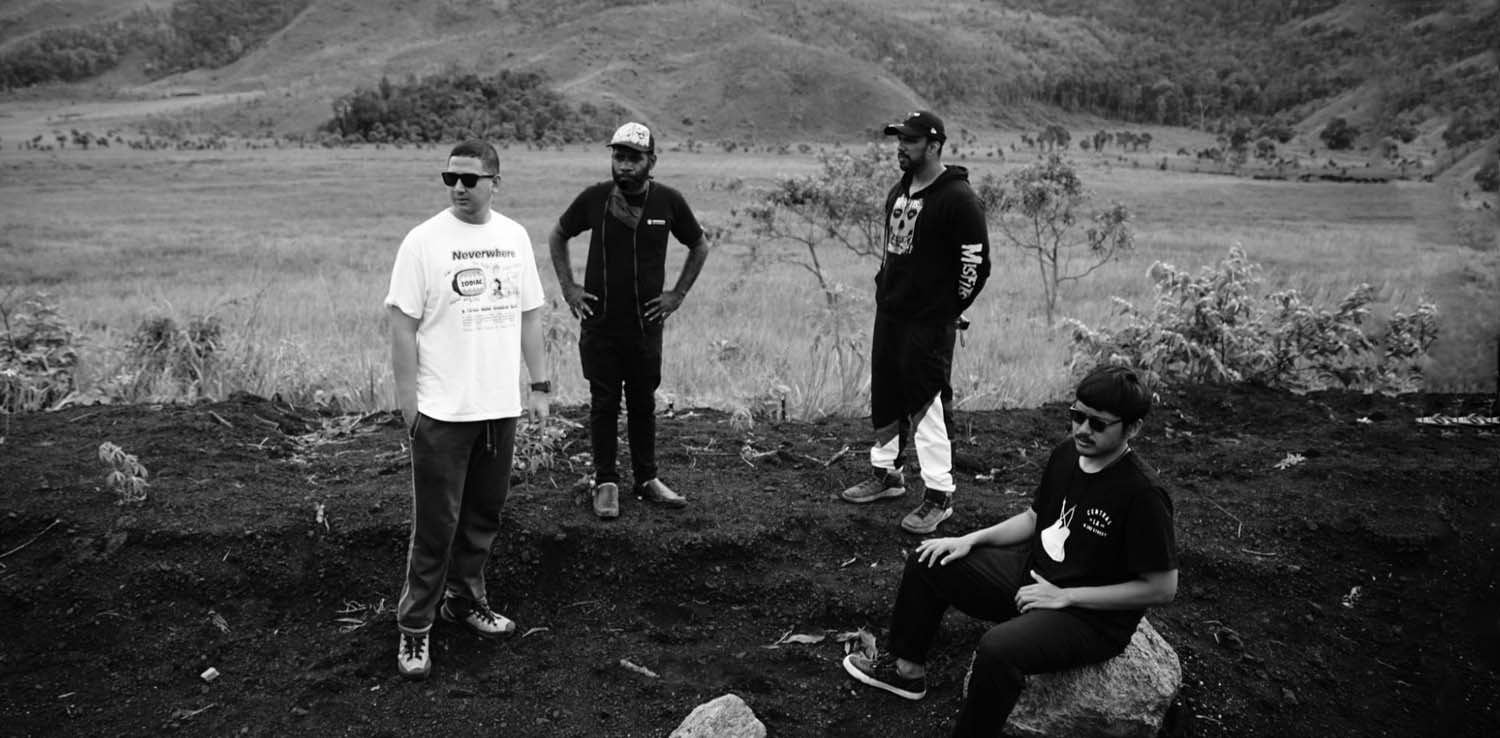
How does Jendela Papua conserve culture, inclusion, and capacity development?
With the existence of the ‘Jendela Papua,’ we as Papuans are allowed to speak more about the stories in Papua that are rarely told. In that way, the culture will conserve itself. It is anticipated that after watching the film, people in Papua and beyond will have a different perspective. Currently, there are many negative perspectives. Papua is not only a place of conflict.
Finally, people outside Papua can see the authentic Papuan voice, not just distortion or fabrication. The voice of the truth of Papua. Hopefully, people can see a broader perspective. For instance, now when we google Papua, it shows negative things. We hope that things like ‘Jendela Papua’ and ‘Orpa’ will appear first when we search for Papua. Audio-visual is a medium of beauty, and Papua is a stunning paradise.
What is the outcome of this project for everyone involved?
The output of this project is a film, and it is our mission to create new role models for young filmmakers based on the experiences we have as a production house. We initially targeted these 4 people to make short films. We decided to make only one film for several reasons, but we made it a feature-length film where they all contributed and experienced the process of filmmaking in different roles.
We tried to adopt this from Busan, South Korea, as they are a hub for emerging talents and filmmakers in Asia. They share experiences, join training or workshops, with the main activity being making a film together. This project is our first experimental experience. Through talent scouting and various workshops, it became a movie called ‘Orpa.’ The film is a summary of the window of Papua. All the stories submitted were fascinating, and it was hard to choose. Still, we decided to go with Theo’s story in the end.
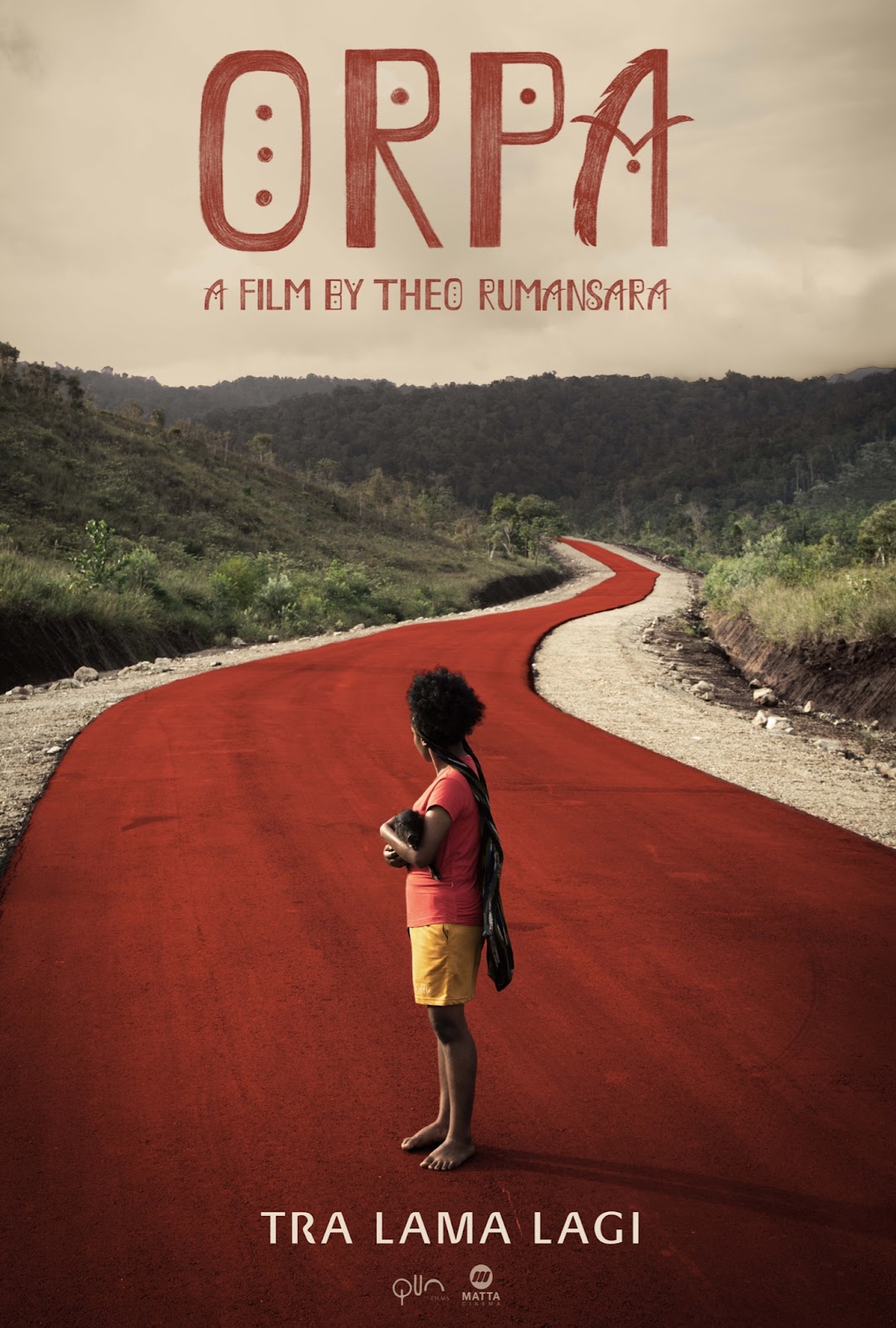
What is Orpa about?
‘Orpa’ is a common name in Papua. This film tells a story of a girl who is intelligent but facing her father’s wish for her to marry young. In the story, if a girl can read, write, and graduate from elementary school, she is likely to be put in marriage. But our protagonist has big dreams, and to pursue her dreams, she escapes from her family and goes to the city. After all, domestic violence in Papuan families and patriarchal culture is quite strong. Interestingly, Theo wrote this story with the help of his wife; he shared and developed it with his wife. Overall, it’s a family movie with a hint of gospel, which remains relatable for all people and groups.
What have you learned from the production of Orpa?
This is the first feature-length film, which has been a great experience. I (Theo) could learn a lot. At first, I was insecure about why my story was chosen, but I see this as a chance to share my story and perspective with people out there. I learned how to be a leader and how to lead a team because this time I worked with a whole big team. Life-changing experiences.
For Qun, this is a spiritual journey, this is the first experience for a feature-length film, and it starts with a life-changing movie. Indonesia is vast and has no boundaries. Yet, it can be said that you can see Indonesia as a whole in Papua. As we quote, they show diversity and inclusivity in the easternmost part of Indonesia. After all, “the sun rises from the east.”
We have a voice here, but Theo represents us all. In this project, we all poured our feelings into it. It felt like winning when this movie was completed. We also met a lot of people we thought we would never reach. Relationships with Theo and other Papuan friends are irreplaceable, just like family.
How has Jendela Papua affected you as an individual, professional, and part of society?
We are learning from each other and sharing extraordinary knowledge. Qun got the wisdom, and Theo got the knowledge and skills that he could pass to other Papuan friends. We won’t be able to copy Theo and find the same story Theo has. Creativity and entertainment can be an opportunity for Theo to help make our culture sustainable and impactful.
Those involved in Jendela Papua are advancing in their careers and are productive, playing movies and composing songs. After the project, one of the casts, Yopa, got various opportunities after ‘Orpa.’ He played in the film ‘Sepeda Presiden’ directed by Gary Nugroho. Arnold, another cast member, now acts as a stand-up comedian and is quite famous. Our production manager is also assigned to be the chief choreographer for PON. It seems that ‘Orpa’ has encouraged all of us to show our voices, our expressions that have been hampered before.
Do you have a message for the creative/film industry?
As an audio-visual art product, a movie should be collective, not individual. Through ‘Jendela Papua,’ we formed and conserved a culture of togetherness. We’re all young Indonesians who want to bring some changes to our nation. It could be pictured like this: We all are the land, Qun is the soil, the ‘Jendela Papua’ is the seeds, and the tree is the ‘Orpa’ which was also pioneered by Theo. Hopefully, this initiative will continue and spread to others in the future and sustain cultural resilience. Because as far as we know, many films about Papua are not from Papua itself.
Additionally, Papua also has a market of its own. Through ‘Jendela Papua,’ we could see their house from this window. All are also heading to Papua after seeing the market potential. Hopefully, this film will be very impactful in Papua and a gong to upscale Papuan film industry. Coming from Papua and Papuan people, for Papua.
We have to be brave to tell a story that is not from a Javanese point of view. Every part of Indonesia has a story to tell, and we must be open-minded to receive them all as many stories are outside the mainstream market. We hope ‘Orpa’ will be a starting point. We hope Jendela Papua becomes a sustainable initiative that inspires the opening of other ‘windows’. We should be able to see through all the houses through their windows.
“Dream with your eyes open. We all need crazy ideas with crazy people working on them.”
Follow the journey of ‘Jendela Papua’ through their social media account at @filmorpa.
Editor: Nazalea Kusuma

Co-create positive impact for people and the planet.
Amidst today’s increasingly complex global challenges, equipping yourself, team, and communities with interdisciplinary and cross-sectoral insights on sustainability-related issues and sustainable development is no longer optional — it is a strategic necessity to stay ahead and stay relevant.

Aliyah Assegaf
Aliyah is a Contributing Author at Green Network Asia. She graduated from Universitas Indonesia with a bachelor's degree in Social Welfare.


 Reframing Governance in the Era of Water Bankruptcy
Reframing Governance in the Era of Water Bankruptcy  Strengthening Resilience amid Growing Dependence on Space Infrastructure
Strengthening Resilience amid Growing Dependence on Space Infrastructure  Indian Gig Workers Push Back Against 10-Minute Delivery Service Strain
Indian Gig Workers Push Back Against 10-Minute Delivery Service Strain  Call for Governance: Grassroots Initiatives Look to Scale Efforts to Conserve Depleting Groundwater
Call for Governance: Grassroots Initiatives Look to Scale Efforts to Conserve Depleting Groundwater  Integrating Environment, Climate Change, and Sustainability Issues into Education Systems
Integrating Environment, Climate Change, and Sustainability Issues into Education Systems  Finally Enforced: Understanding the UN High Seas Treaty
Finally Enforced: Understanding the UN High Seas Treaty